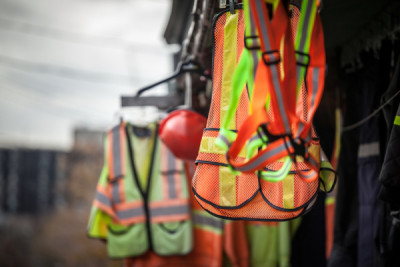What you need to know about death & TPD insurance
Written and accurate as at: May 08, 2024 Current Stats & Facts

You won’t be blamed for not wanting to think about death and total and permanent disability (TPD) insurance — after all, it can seem like a grim topic. But depending on your occupation you might be doing yourself a disservice. If your job carries a risk of harm, it might be worth considering how it might be helpful.
How does death cover work?
If you were to unexpectedly die, it would have a profound impact on your loved ones, and being left to think about debts, expenses, and how they’ll cope financially on just one income can only add to the emotional turmoil.
Death cover (also known as life cover) can act as a much-needed safety net by providing your beneficiaries with a lump sum payment upon your death. Your family can use this payment in any way they wish, whether it’s putting it to work to help preserve their current lifestyle or paying off any loans with the intention of living their lives debt-free.
Your policy might also allow you to get your agreed amount of cover paid out in advance if you’re diagnosed with a terminal illness. This is to give you and your family the chance to get your financial affairs in order before you pass away.
How does TPD insurance work?
Becoming disabled due to an illness or injury can be distressing emotionally, but as with death there’s also the financial dimension to consider. Would you have enough money to cover debts, ongoing care costs, and things like modifications to your car and home? The point of TPD insurance is to ease some of the financial stress you might be facing as you navigate this turbulent period.
When you take out a TPD policy, you might get to choose which definition of ‘total and permanent disability’ you want to apply when you make a claim:
- Own occupation: covers you if your disability prevents you from working in the job you worked before you became disabled
- Any occupation: covers you if you can no longer work in any profession suited to your education, training or experience.
The claims process can be quite drawn out, as you’ll have to undergo thorough monitoring and assessment to make sure that you’re permanently disabled. This can potentially stretch over a period of 12 months, during which you’ll be looked at not just by your treating doctors but by your insurer’s team of specialists.
Once they’ve concluded that your disability is permanent and will prevent you from returning to work, you’ll be paid a lump sum (or, in a small number of cases, an ongoing annuity).1
Importantly, you don’t have to choose between your insurance benefit and receiving a disability pension — depending on your circumstances, you might qualify for both. That said, make sure to read the fine print to see if your benefit will be reduced by any other payments you are entitled to.2
Holding death and TPD insurance through your super
Fortunately, many Australians will have both death cover and TPD insurance through their super fund. This insurance is usually for a specified amount, so you might need to review it to make sure it suits your circumstances.
If you need to make a claim, things are a bit different than if you held your insurance separately. For example, a successful claim will involve the insurer first paying the benefit to the trustee of your super fund. It’s then up to the trustee to give the benefit to either the beneficiaries you nominated via your fund or your estate.
It’s also worth mentioning the importance of seeking professional advice before having TPD insurance within your super account paid out as a lump sum. That’s because it might be in your favour to retain all or part of it in your super, given the potential to save on tax and maximise your disability support pension.
Sources
1 Treasury
2 Treasury













